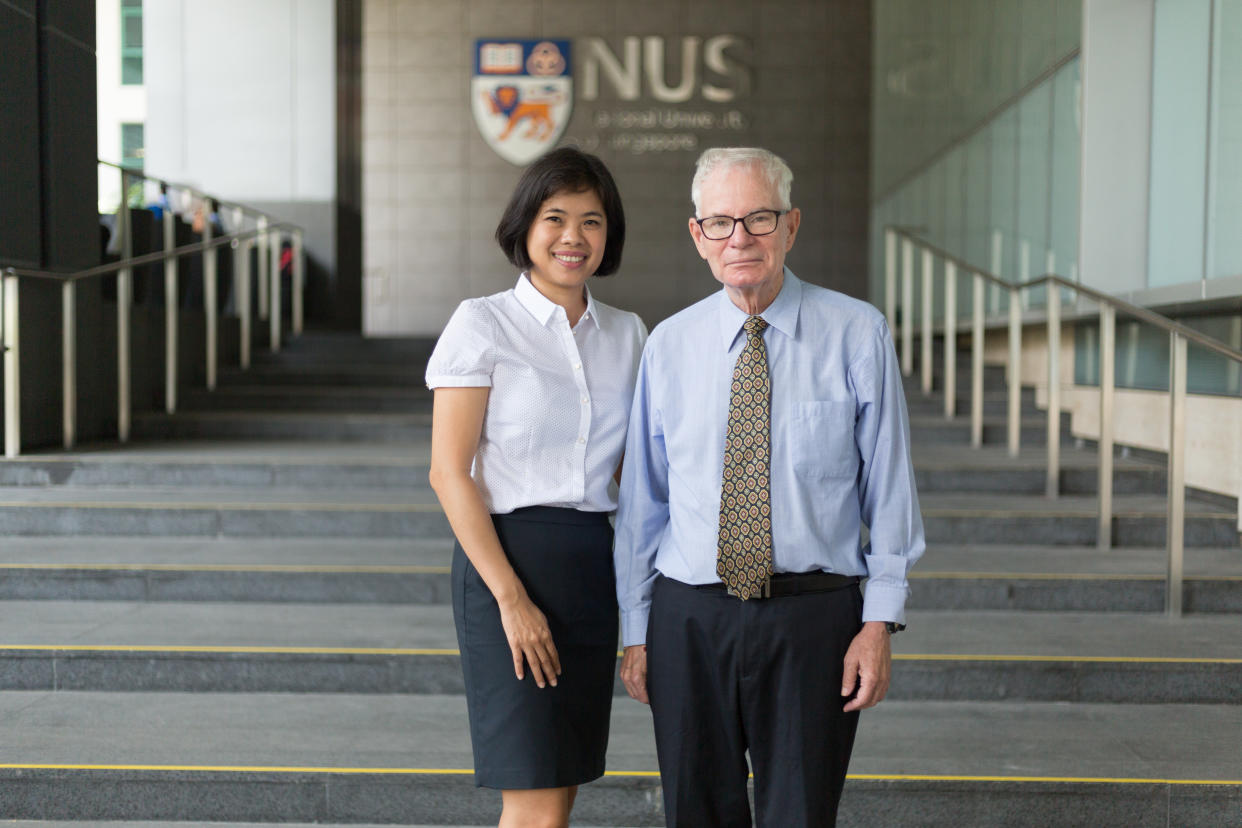Genes may determine how friendly you are: NUS study

Have you ever wondered why some people are friendlier than others? Well your genes may play a part.
A group of researchers from the National of Singapore (NUS) believes that two genes in particular – CD38 and CD157 – may have a significant impact on one’s social and communication skills.
Their study, published in the scientific journal Psychoneuroendocrinology, found that young adults who have higher expression of the CD38 gene and differences in the CD157 gene sequence are friendlier and more socially adept than others, said a press release from NUS on Tuesday (22 August).
Conducted by Professor Richard Ebstein and Dr Anne Chong from the Department of Psychology, Professor Chew Soo Hong from the Department of Economics and Professor Lai Poh San from the Department of Paediatrics at the Yong Loo Lin School of Medicine, the study involved over 1,300 healthy young Chinese adults in Singapore.
Questionnaires were used to evaluate participants’ overall ability to engage in social relationships, the value they place on friendships as well as the number of close friends and confidants they have. These responses were part of a larger investigation into the correlation between the expression of the CD38 gene and CD157 gene sequence and an individual’s social skills.
Links found
The CD38 and CD157 genes regulate the release of oxytocin, which is the paramount social hormone in humans and is linked to social behaviours ranging from pair-bonding, mating and child-rearing to empathy, trust and generosity.
“Oxytocin plays an important role in these behaviours so it made good sense to our team to study the oxytocin network in relation to social skills important for friendships,” said Ebstein. Both genes have also been the focus of some autism studies.
The study’s results showed that participants with higher expression of CDE38 have more close friends, and this association was seen to be more prevalent in male participants. Gene expression refers to how much of a particular gene is produced in the body.
“Male participants with the higher gene expressions displayed greater sociality such as preferring activities involving other people over being alone, better communication and empathy-related skills, compared with other participants,” said Chong, a recent PhD graduate and the study’s first author.
“Meanwhile, participants with the lower CD38 expression reported less social skills such as difficulty in ‘reading between the lines’ or engaging less in social chitchat, and tend to have fewer friends.”
The researchers also found that a variation in the CD157 gene sequence, which was more common in autism cases covered in a Japanese study, was also associated with participants’ innate interest in socialising and building relationships.
While the evidence suggests that oxytocin, and the CD38 and CD157 genes that govern its release, contribute to differences in social skills – from desiring intense social involvement to avoiding social contact with other people – the researchers noted that most people fall between the two extremes.
“While expressed genes can influence behaviours, our own experiences can influence the expression of our genes in return… For most people, being in healthy social environments such as having loving and supportive families, friends and colleagues would most likely lessen the effects from disadvantageous genes,” said Chong.
Adding to a body of knowledge
Findings from the study contribute to a deeper understanding of the relationship between human sociability and oxytocin, said the NUS release. They also point to a new avenue for research in treating autism, which could involve the use of new drugs that mimic or enhance the functions of the CD38 and CD157 genes.
“This knowledge would be helpful in coming up with future intervention therapies or targeted treatments to achieve desirable outcomes for individuals with special needs,” said Ebstein.
More Singapore stories:



